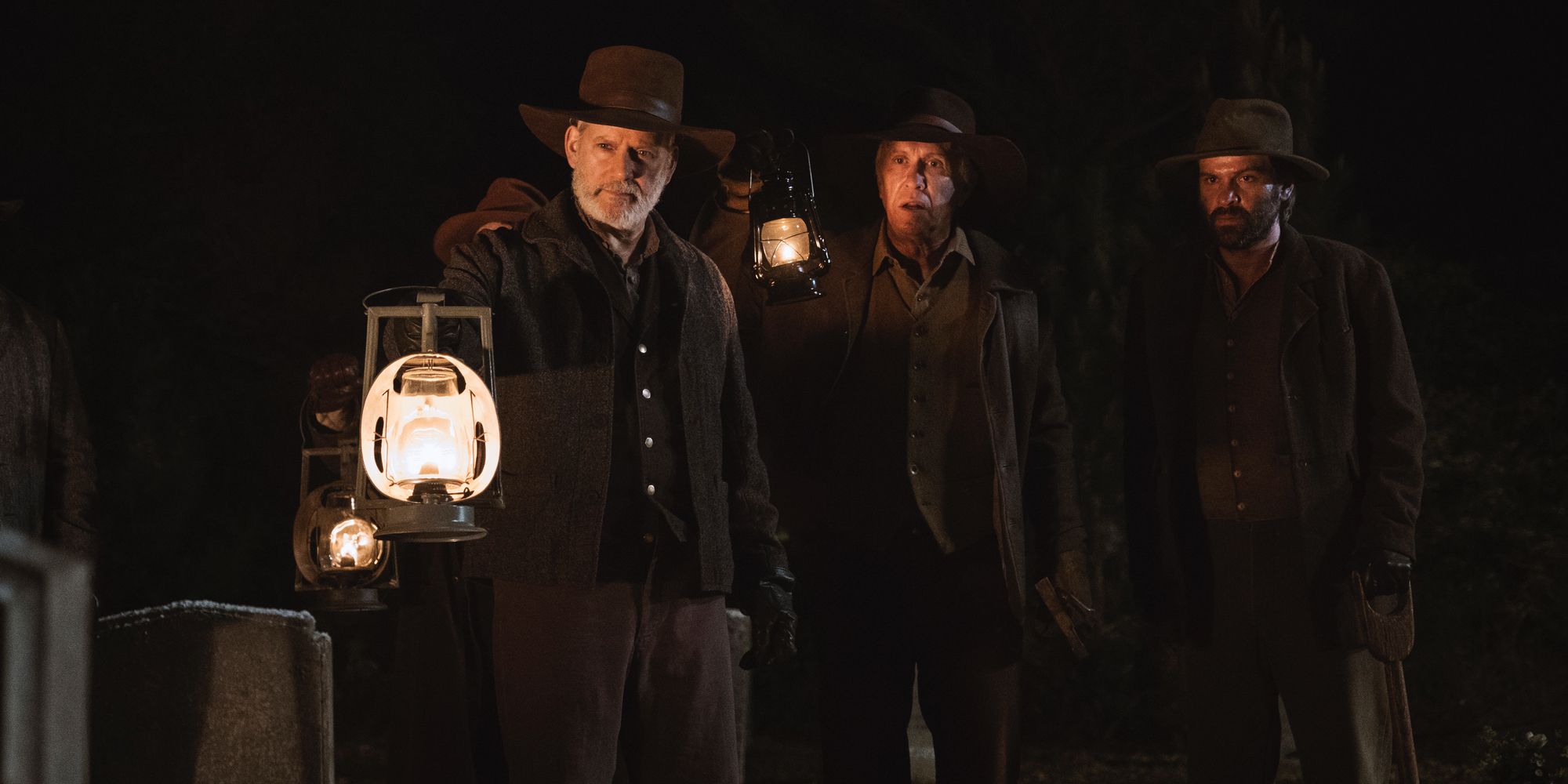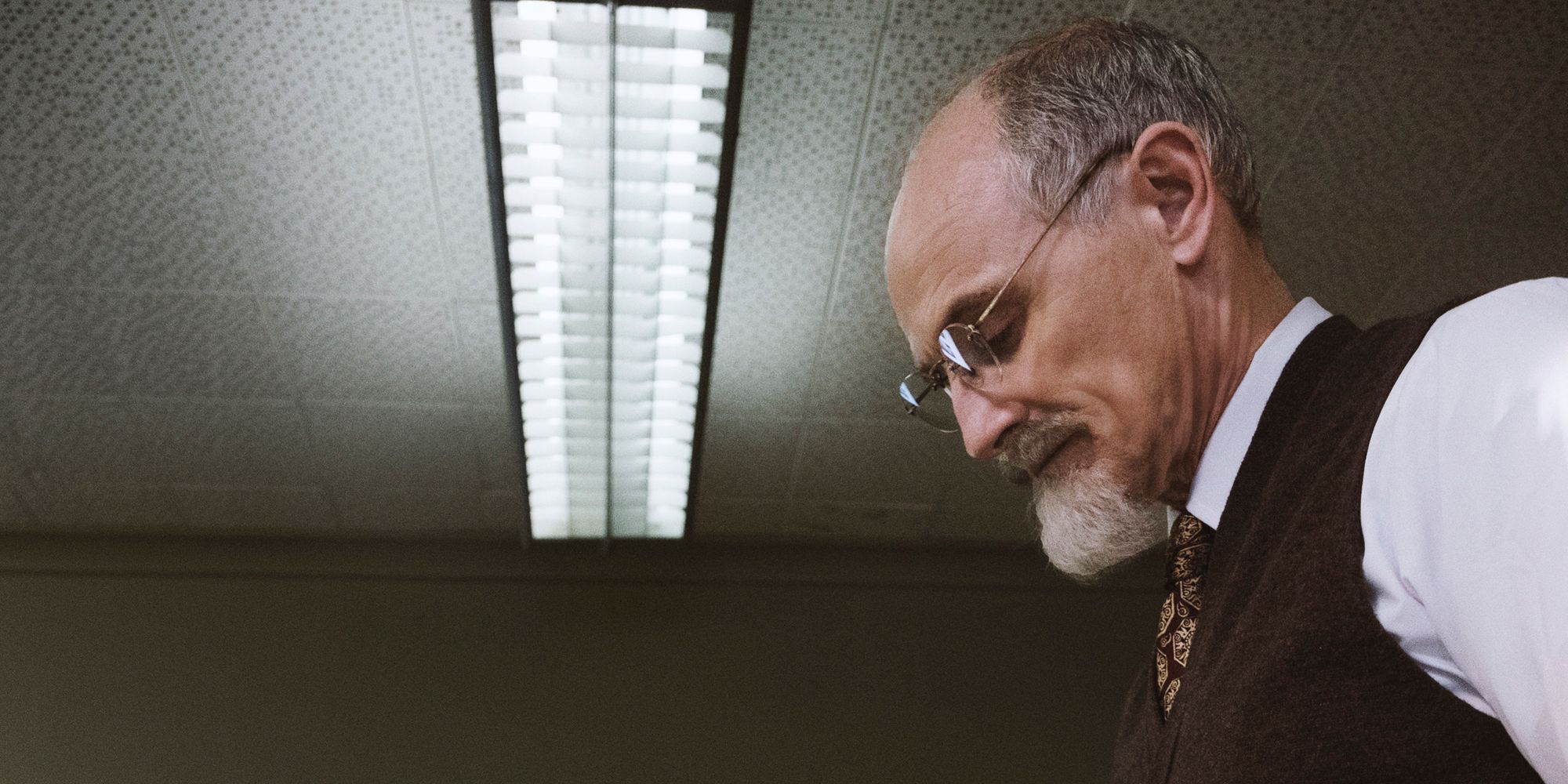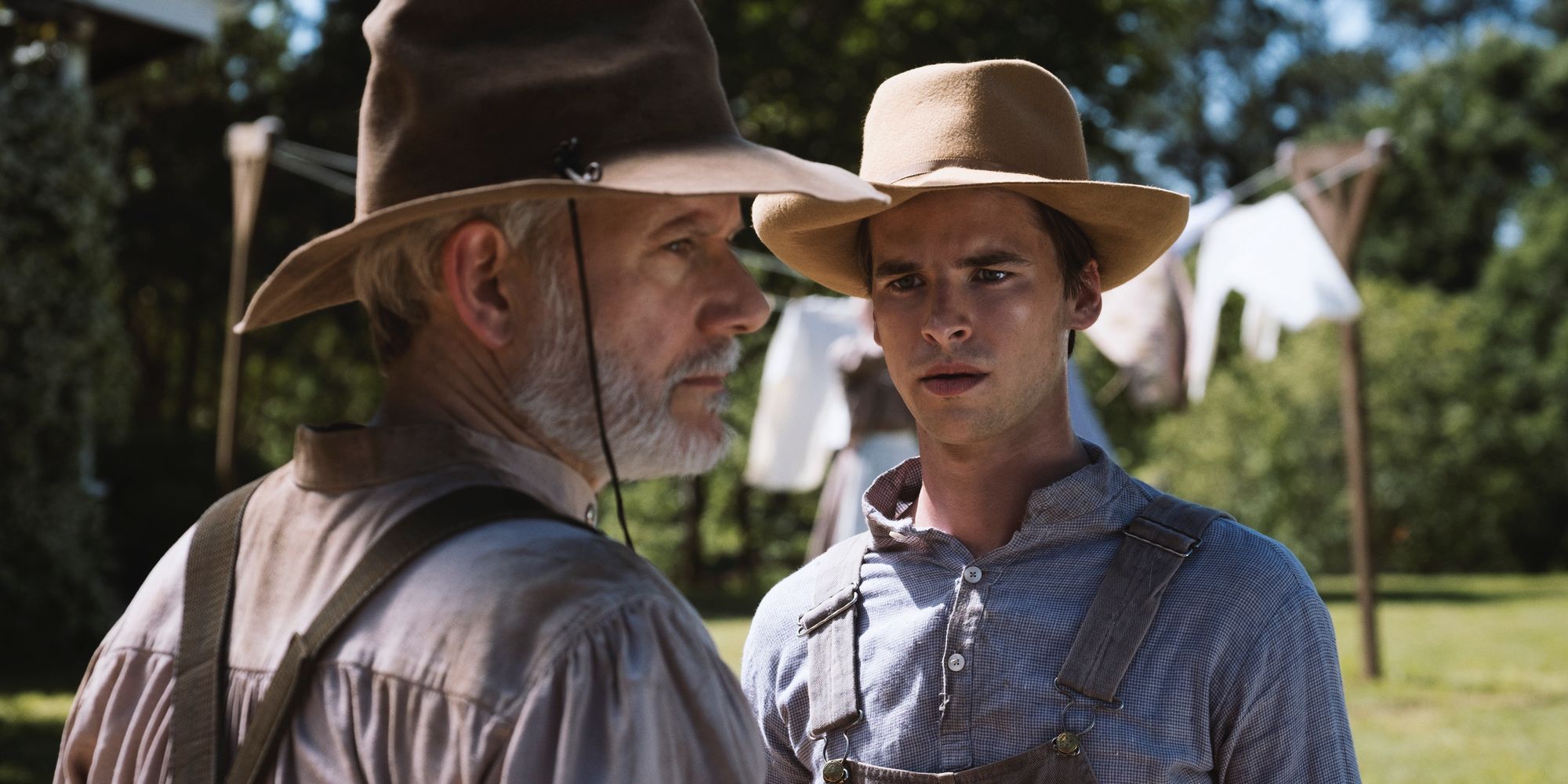Amazon's new anthology based on Aaron Mahnke's hit podcast Lore doesn't stretch the boundaries of the series; it only slightly enhances its format.
Writer and podcast host Aaron Mahnke has turned his love for the bizarre, unexplained, and potentially supernatural into a cottage industry built around the power of storytelling, specifically through folklore in the appropriately named series Lore. The podcast began in 2015 and since then has won awards and consistently placed as one of the best podcasts among those who rank such things. The non-fiction series explores moments in history that have a slightly unnerving, mysterious, and yes, maybe (but not really) paranormal bent to them. Mahnke's soothing delivery of each story is a cross between NPR voice and the camp counselor who told spooky stories around the campfire.
And that's a big part of the appeal of Lore, as Mahnke is no doubt well aware. The series is meant to be shared again and again; it takes advantage of the podcast format's communal experience, all but guaranteeing the listener will become the teller soon enough – unless, of course, they simply pass the pod along. But technology and ease of use just makes these stories, and Mahnke's telling of them, more communicable than if he were sitting beside a campfire night after night. They're portable and don't require much more than a smartphone and pair of headphones (provided you're not the obnoxious guy who plays music, podcasts, or TV shows directly from their phone while out and about in public), which makes the jump to television through Amazon Prime Video a somewhat curious but no less unexpected move.
Related: Lore Podcast Creator Reveals Which Episode He’d Like to See Adapted
Aside from Mahnke, Lore the TV series comes with an impressive pedigree that includes Walking Dead producer Gale Anne Hurd and X-Files producer and writer Glen Morgan (who also serves as showrunner here), and it even boasts a recognizable revolving cast in its episodic anthology format. The first episode, 'They Made a Tonic' features Campbell Scott, while episode 2 'Echoes' makes use of the underutilized Colm Feore as an enthusiastic lobotomist. Sure, it's not Anthony Hopkins running a theme park full of robot cowpokes, but it's also not entirely "local man reenacts baffling crime on episode Unsolved Mysteries." But even then, given the degree to which Lore maintains the format that made it a top podcast, splitting the difference with familiar working actors doesn't really elevate the series in a way that entirely justifies its transition to television.
It's not unthinkable that a podcast might translate well into a television series. After all, the stories told on Lore are precisely the sort of thing genre television has an interest in mining: spooky, unsettling tales that can be tagged as "Based on a True Story" without the winking "truth" put to use by shows like Fargo. Lore, though, doesn't go far enough in its attempts to turn its stories into compelling television. Instead, what viewers get is something more akin to an enhanced version of the podcast that's not dissimilar from the enhanced versions of George R.R. Martin's A Song of Ice and Fire books, or illustrated versions of the Harry Potter novels. The basic delivery of what came before is unchanged; the story now simply offers a visual component.
And that's really what the Amazon Prime Video version of Lore is: The exact same podcast you've listened to, but with a dramatic reenactment inserted between chunks of narration delivered by Mahnke. For devotees of the podcast, it will likely be another entertaining way to consume their entertainment – especially if they've already listened to every episode that's currently available. It also extends the length of each story considerably. Many Lore episodes will contain two or more stories narrated by Mahnke in more or less quick succession. Here, the episode stays on task much longer, to allow for the reenactments to take shape and breathe a little dramatic life into the individuals depicted in each story. The aforementioned Feore appears to be enjoying himself as Dr. Walter Freeman, a man who pioneered the use of lobotomies as a treatment for all kinds of mental illness. Performances like that go a long way in making the dramatic reenactments entertaining, but for the most part, the stories (even Feore's lobotomizer) never stand entirely on their own. They never stray far enough from Mahnke's steady narration to become an absorbing episode of television on their own.
And that's ultimately what makes Lore something of a disappointment: Instead of building a complete narrative out of the story at hand, and making that the plot of the episode, viewers are treated to an episode of the podcast with an added dramatic reenactment like a cherry on top.
Tethering Lore the television series to Mahnke and the podcast ultimately does the new show a disservice. The stories are still fascinating and Mahnke's delivery of them is as good as always, but there just isn't enough here to necessitate a move to television. If the show had taken a Twilight Zone, Amazing Stories, or Outer Limits approach Lore might have been something really special. As it stands, it's really just another way to get your podcast fix.
Next: Amazon’s Lore TV Series is ‘Classic’ Horror Storytelling
Lore season 1 is available in its entirety on Amazon Prime Video.



